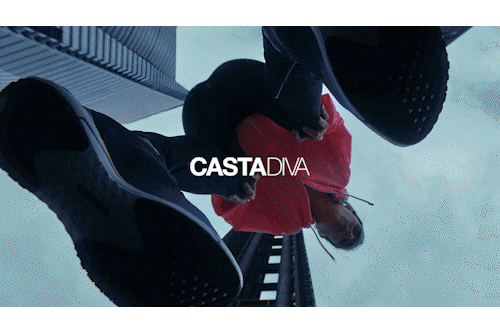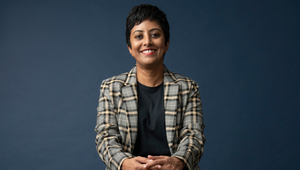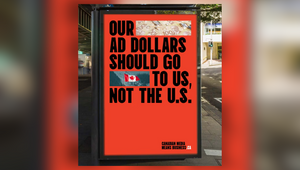
Uprising: Alden Volney on AI Art, Blue-Collar Jobs and Passion

Alden Volney, a self taught director, animator, graphic artist and composer from Normandy, France has always been in touch with his creativity. Repped by RiffRaff today, he spent his days as a child being an “indoor kid” who didn’t like school -spending the late ‘80s and ‘90s watching any VHS he could get his hands on “with utter contempt for any age restriction notification.” For all he knows, his parents didn’t care whether he and his siblings’ entertainment was age-appropriate or not, so he could play ‘The Care Bears’ and David Cronenberg’s ‘Videodrome’ back to back…. “And get something out of both,” he adds. “Because there was magic to both in my eyes.”
Alden was acutely aware of the craft behind art from a very early age - especially when looking at moving images - and so it became a dream of his to be a part of that craft in some capacity. But his creativity didn’t end there. Besides watching films, he was also quite the musical kid, spending his free time playing the drums and also drawing. So, it would seem fair to say, a creative person through and through.
In terms of his cultural background, Alden struggles to narrow it down. “I’m from the French ‘80s: white and blue collar,” he begins. “It’s the soil I grew up on, and obviously it is responsible for who I am as a person and creator. But, I don’t know that I really identify with those markers.” Instead, it was Alden’s father who had more to do with the construction of his artistic personality than anything else. “I think he wished he’d been an artist, but tragically lacked the skill and discipline it required,” Alden adds. Despite this, his father instilled in him how noble it is to create - “Every record, film, or book he’s shown me still lives with me, because he had impeccable taste.”
And although he believes his dad might have lacked the discipline to go after artistic pursuits, Alden himself recognises that he also lacked it when it came to going to university. “I went for two years to study English. I had zero discipline and would skip classes all the time. Then, I just quit and decided I’d spend my time creating stuff until someone noticed my work.” With no “rational” plan at that point, but possessing a strong desire to pursue music, graphic design, animation or photography, Alden entered his formative creative years. “It was me being at my own school. Not saying it’s a great strategy, just what I personally did.”
To make ends meet during the school curriculum he has established for himself, Alden created videos to accompany his own music and put them online. “The frontman of a band from London called ‘PLUGS’ saw these videos and asked me if I wanted to create one for them. The resulting animated video caught the eye of Matt Fone from RiffRaff, and I started pitching for them.”
While this was essentially the start of his professional career, nevertheless, Alden believes that the times in which he truly honed his craft were the small hours of the night, hunched over a computer, “in the many different dimly lit rooms I’ve lived in for the past 20 years.”
Understandably, one learns a lot in times like these. And for him, the biggest lesson was learning that your work and you are not the same entity. “What I mean by that is: being able to not take notes, criticism from your client, or let’s say your YouTube comments as personal attacks,” he explains. “Work with sincerity but gain the ability to take a step back; There’s existential dread in taking things too seriously.”
But for Alden, the struggle of separating his work from himself is not the only one he struggles with. “Wrestling with the idea that this pool inside your mind where you get concepts and visual ideas from might go dry, one day. Finding yourself running out of things to say is a terrifying prospect,” he adds.
Regardless, the coin has two sides. To him the surprise that comes with the accomplishment of something you never thought you’d be able to do is unmatched. “Those little moments of pride that just belong to you,” he explains, “they can be anything. A whole piece of work or just a transition that you nailed or two seconds of animation that really work… Basically, you tried an idea and the result is even better than you imagined.” Although rare, these moments and little jolts of energy are what reminds him that he is getting better at what he does.
This takes us to Alden’s first ‘proper’ job with a ‘proper budget’, which was a music video for an Irish brand called ‘Villagers’. That project was also his first time directing live action, having never set foot on a professional shoot before. “It was a two-day shoot. I remember it was exhilarating, nerve-wracking and I remember I had a bad case of impostor syndrome,” he says. “I remember the hotel room with no windows, I remember the kindness and professionalism of the RiffRaff team, I remember being bombarded with technical terms, nodding and googling them later to find out what they mean.”
But ultimately, the project that proved a turning point in his personal creative path would be ‘The Border’, a music video for Nicolas Godin. “That might have been the first video I’ve done where the result was really close to what I had envisioned. I allowed myself to be proud of this one for a few days,” he says. “Also I had been a huge fan of Nicolas’ band AIR since I was a teenager. The projects that’d make teenage-me proud are always very special to me.”

Still from 'The Border' music video
Lately, looking at the industry as a whole, the one thing that has been irksome to Alden is the idea that people are treating AI art as “a legitimate art form.” Although he admits to finding AI art interesting and fun, and to following some AI Instagram accounts himself, Alden is certain that what makes AI fun is precisely “the fact that it is a broken creation made by a computer drunk on data.” He continues, “There’s no intent behind AI art. Calling it art is like calling Siri a dear friend.”
That… and Zoom calls at nine in the morning, that could’ve been emails, of course. Those are the two things that keep Aldenup at night when thinking about the world he works in.
Although he admits he enjoys remote working and the possibility of communicating huge ideas over a few sentences, Alden appreciates the opportunity that being in the middle of the action gives you.
On the flip side, what gives him hope for the industry is the way in which it has been trying to embrace gender equality and representation, especially in London. “I can’t really speak for France, both on screen and behind the scenes,” he says. “Most people I have worked with in London are earnest and sincere about this, and it’s great to feel like I’m living in the 21st century.” .
When he’s not creating, Alden is… Still creating, just in a different way. He takes bicycle rides in the Normandy countryside or along the coast, cooks, keeps a nice and tidy home, and takes trains to wherever that train might take him - all of which are ways that help him keep his mind clear, and make way for more art to sprout. Constantly indulging in films, which were his favourite pastime as a child, Alden reminds us that this is still and will always be his passion. “Sounds corny, but my passion is my work. That was the whole point!”
He leaves us with this: “When I speak of motivation and drive behind my work, is where the blue-collar origin might come into play. Every new job I get tells me that I was right to stray from the path that made sense sociologically.”















